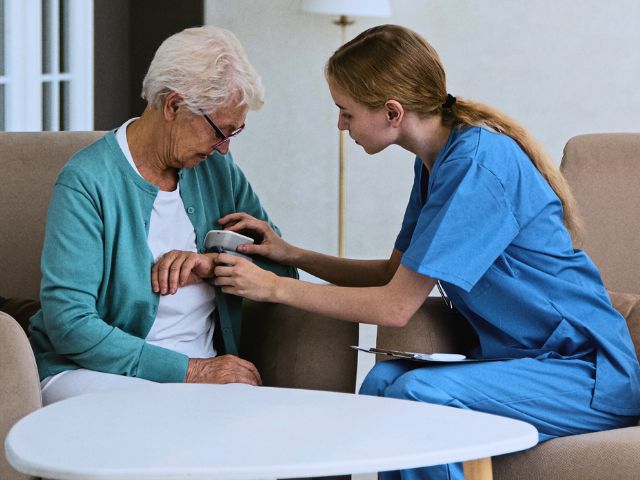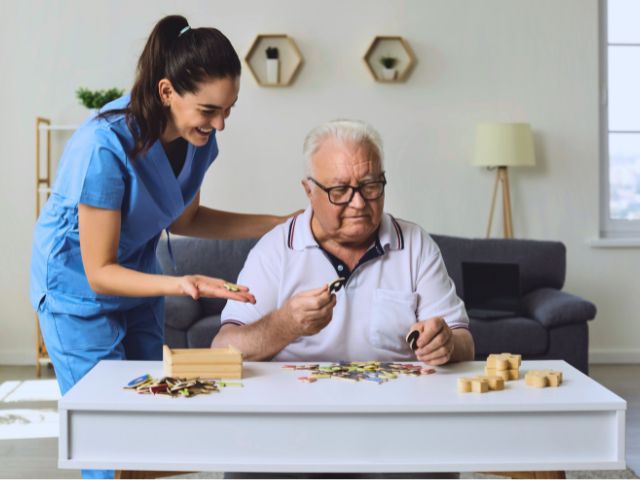Key Characteristics of Skilled Nursing
The key characteristics needed for a nurse in this setting rely mostly on time management and prioritization. There is a great amount of patience required, as well as empathy, compassion, and understanding. The ability to handle a difficult, stressful situation in a calm, positive, and proactive manner is extremely important.
Communicating effectively is imperative, and developing solid communication with the patients, their families, and the interdisciplinary team is required for success in these areas. It is also important to possess the ability to communicate therapeutically to both patients and families.
Most likely, the nurse will encounter a difficult patient (or a person in a difficult situation), and it is important to not take things personally and exercise empathy and compassion. The ability to not take things personally can make or break any difficult situation nurses may be associated with in these types of settings.
It is important to rely on fellow nurses for advice and to ask them to assist in caring for the patients if needed. Working as a team and knowing how to communicate effectively with everyone is the key to success.
To decide if a skilled nursing position is the best choice for the individual nurse, nurses must think of the unique skills and background experience that they possess. The following are important questions to consider:
- Have you worked in stressful situations and been able to produce positive outcomes?
This is definitely a skill needed for a nurse working in a facility such as skilled nursing or rehabilitation.
- Do you enjoy getting to know your patients and working with them and their families on a long-term basis?
This position is perfect for developing long-term relationships and many life-long friendships.
- Are you able to manage your time wisely and have strong prioritization skills?
If so, this is exactly what this position requires.
There are many ways to prepare oneself for a role in the Skilled Nursing/Rehabilitation setting. Nurses can contact the local Skilled Nursing facility and ask for a tour before your application or just go and check the place on your own.
Nurses can tell so much about the organization from outside of the facility and so much more by observing any patients or staff members they observe. It would be a great idea to go to a few different facilities in the area and find the one that you like the most.
It is always a great idea to ask to “shadow” a nurse there (follow them around to see if you would enjoy the position without the commitment). Each facility has reviews online, many of which are completed by staff members, which serves as a great tool to see how the facility is doing in regard to both customer and employee satisfaction.
Also, the most recent state survey of the facility is available for you to view as well. You may also find good or bad news in these reviews and surveys, so beware and do your own research to form your own opinion of the facility using credible sources.









